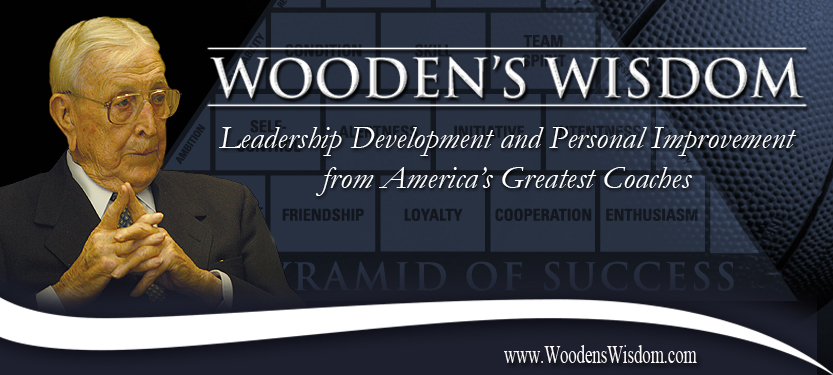 |
|
| Wooden's Wisdom - Volume 8 | Issue 342 |
| Craig Impelman Speaking | Championship Coaches | Champion's Leadership Library Login | |
|
COMPLAINERS TO CO-SIGNERS TO CHAMPIONS - (TONY LA RUSSA - Part 2)
Tony La Russa, the third winningest manager in the history of professional baseball, was amazingly consistent throughout his thirty three year hall of fame career. In his last twelve years his St. Louis Cardinals won six division titles, three national league pennants and two World Series championships. La Russa's consistent success was anchored by his consistent system to get his players to give him input and collaborate on the best way to run their team.
In his book One Last Strike La Russa described his process:
"I'd ask our players that if they had an issue with something to tell a member of the staff or me directly. It's a part of human nature to grouse about things, and long ago we'd designed a system to deal with complaints.
Sometimes we'd hear someone being critical and complaining about the organization—maybe it was the quality of the food we offered, the way a coach had waved a runner around to take another base, or how we handled travel arrangements.
We don't allow those kinds of behind-the-back complaints. We expected everyone to be honest and direct. If something wasn't working, then it was up to us to keep experimenting to find ways to improve things. But for that to work, we needed everyone's candor. When you create that kind of environment, the guys look forward to coming to the park. They come early, and they respond well to the input coaches have for them.
I would meet with a committee of guys who I thought were respected in the clubhouse. This leadership committee—I called them our "co-signers" because they were responsible for "co-signing" onto the team's priorities—was something I used throughout the season for all kinds of team issues.
I liked using the term co-signers because it implied that they'd made a binding agreement to be on board with what we were trying to do as a club. I can't claim this idea as my own. Bill Walsh, the great San Francisco 49ers coach, shared it with me.
If the relationship between the co-signers and the manager and coaching staff is going to work effectively, they need to tell me explicitly what is going on when it's actually happening.
We didn't arbitrarily set the number of co-signers, and different guys handle the role in their own way. When there's an issue that affects the whole club—a matter of team policy, for example—the whole group would weigh in.
Sometimes a Co-Signer would help out when issues were percolating—in other words, when something not fully and regularly visible was cropping up. Sometimes a co-signer would say to me, "Hey, Tony, I think that something's up with so-and-so. He just doesn't seem himself."
In a system like ours, where I was constantly giving and receiving feedback from players, coaches, and everyone on staff, I was forced to pay attention to everything. I'd look at the clubhouse or the dugout every day to see if a different feeling existed than previously. I'd read into our interconnected relationships. I'd observe when people were getting to and leaving the ballpark. Would they work on things or just hang out?"
What's your system to turn complainers into co-signers?
Yours in Coaching, Craig Impelman
|
Perceptions First impressions can be strong Abimbola T. Alabi
|
|
For more information visit www.woodenswisdom.com |
|
© Copyright 2026 WoodensWisdom.com | # of Times Wooden's Wisdom Issues Opened: 7,849,309
Hosting & Design by:EverydayWebDesign.com